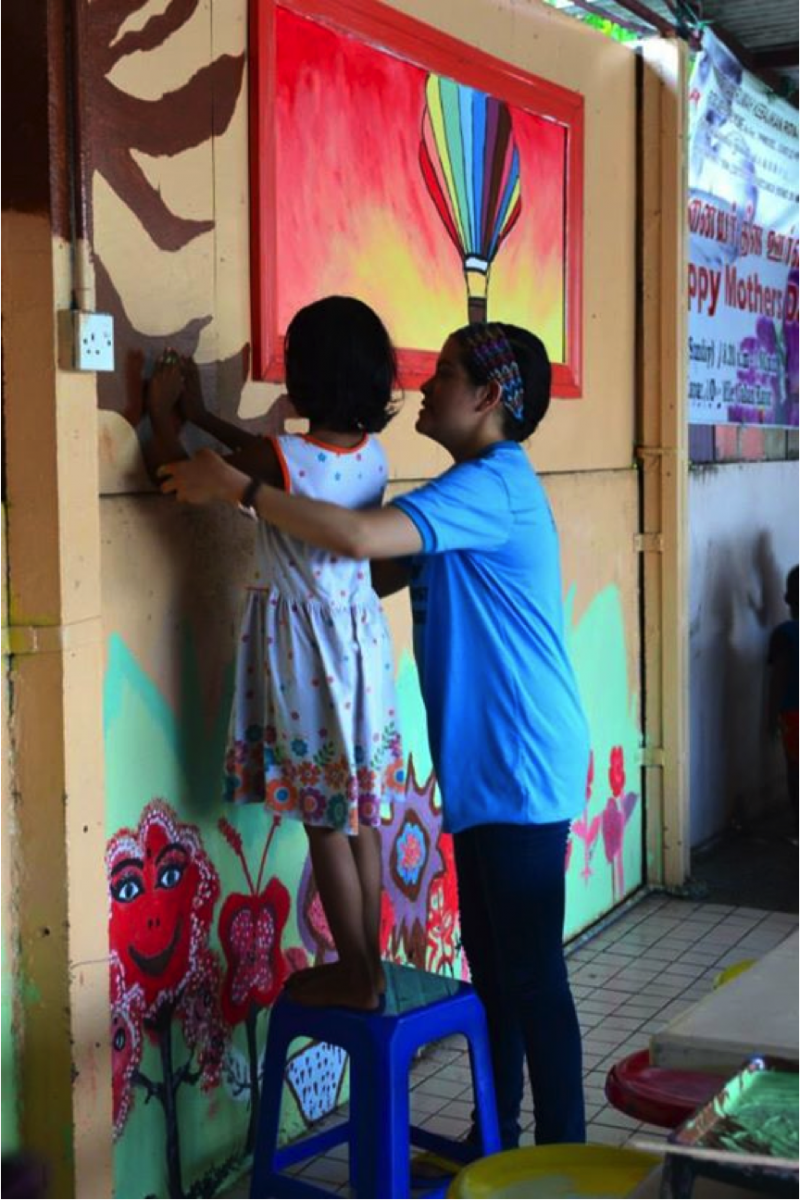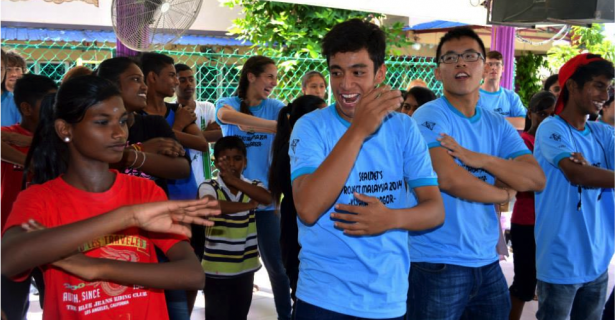Khuyen Bui is in the class of 2017, majoring in computer science. He is an Empower fellow.
During summer of 2014, I was fortunate enough to receive funding from Empower grant by the Institute of Global Leadership to carry out a service-leaderdship project in Kuala Selangor, Malaysia. The two-week project involved seventeen college students (seven of them from Tufts), seventeen local high school students (which we dearly called "our mentees") and thirteen students from a local orphanage. Project Malaysia 2014 (PM14), wiht the support of South East Asia Service Leadership Network (SEALNet), was an defining experience for me. For the first time, I led and followed a group of young and passionate people who are all motivated by the deisre to grow and the desire to give back. We wanted to make personal connections with our mentees and hoped that such connections would endure and keep inspire everyone involved. On that note, we believe we did well.
Project Malaysia 2014's tagline is "Connecting Across Barriers, Empowering Young Leaders". It was truly astounding how deeply connected we could become after two weeks. Nothing delighted our hearts more than seeing the changes we saw in our mentees and the students from the orphanages, given how reserved they seemed to be at first. We shared with each other our personal stories, learned about our different backgrounds and how they shaped us into who we were. It was truly "connection across barriers" to witness the students from the orphanage coming all the way to the school to join the mentees & their parents for the final presentation (they were usually not allowed to go out, but the orphanage owner trusted that we were doing good together). Throughout the two weeks, we laughed and cried together, for joy and for pain. Hearing a mentee share about her deepest fear and sense of helplessness in front of her sick father, witnessing the "Passing the Torch" ritual on the last day where each team member whispered her hopes and gave her mentee a burning candle symbolizing her trust in the mentee, or simply cheering out loud when one of the most reserved girls from the orphanage blossommed on the dance stage, these varied experiences indeed unified all of us. "What good does personal connection do? When you bring people together they will certainly bond, but so what?" You may ask.
It's a fair concern; in fact, it's one of the biggest concerns for something so easily mistaken as service trip like PM14. Where is the sustainable impact? Before anything can be truly sustainable, its foundation has to be well-built; in this case it is the human connections we formed with the students. The project was first inspired by a personal experience that both my co-leader Rina and I went through. The age of 17 is a crucial age where we start questioning our own identity and wondering about who we want to become. At that juncture, having someone a few years older who cares, trusts and guides us can make a big difference. The mentor-mentee model, matching each college student with a local high school student, was used as a result. We hope we could share the lessons and offer help as someone who have just gone through high school. The mentor-mentee relationship indeed goes both ways; we too learned about ourselves when we shared our experiences.
For the concrete outcomes of our service work, the mentors, mentees and students from Rita Home (named after the orphanage owner) came together to sing, dance, paint a nural, teach ourselves paper cranes and other Malaysian games, plan and stage a staff appreciation day. The most important takeaway from all these activities was not any of these final outcomes but rather the realization that doing service was such a joy for everyone. I think the lesson was particularly meaningful for the students from orphanage who might have more often been on the receiving end: humans would be most empowered when we realized we could do something! Despite being intangible, that realization did have an impact on the personal growth on these students, as seen through a girl's sharing afterwards about their dreams of coming back to help other orphans.
Sustainability has always been a difficult question. After two weeks we will leave, so what's after that? We were all entrepreneurs in the sense that none of us wanted to commit to an one-off project with fluffy impact and nothing measurable afterwards. With the support of the school, the mentees founded the SEALnet junior club to continue visiting Rita home and branch out to other service work in the community. We were fortunate that one of our co-leaders, Rina, stayed there so she could help advise the group. The remote mentors have also been keeping in touch and offering helps when the group had concerns.
We also believed that we had to focus on the human capital because local people would create sustained changes. With that in mind, the team designed and conducted leadership workshops that would prepare the mentees with good mentality ("Can do, if not, seek for help") and skills such as brainstorming, planning and fundraising. We learnt from our own experiences doing PM14 that leadership is best learnt through doing, so we gave the mentees the entire second Thursday to work together to plan and execute the activities. Seeing all of our mentees rising up for the challenges, struggling together, messing up the schedule, asking for help from us mentors and debriefing to each other afterwards, we were overjoyed to see that they were having a real learning experiences, not leadership and teamwork theories from textbooks.
With our goals in mind, we believed PM14 succeeded, and with a lot of potential improvements. My personal stake was "to create a transformative learning experience for everyone involved", and from the feedback of everyone involved I could certainly have done better. Yet I am satisfied. I learnt to be satisfied while still keeping the desire to improve. I'm indeed very grateful for the people who have joined me, who offered me advice and criticism and who have supported us from money to inkind donation to simply cheering me up when I was down. This learning experience would not be possible without all of you.
I personally have learned a lot and have written a longer personal reflection on the project here. You can read a few more reflections from our team members here.We have also compiled a video here; of course it couldn't capture the entire gamut of our experiences, but at least the testimonies were candid :)
Some photos of what we did
Mentor-mentee brainstorming together for activity at the orphanage.

Painting the mural together - A mentor (team member) and a young girl from the orphanage.
[See photo at top of blog post] We all learnt the Indian dance moves from Katsuri - one of the girls from the Home.

